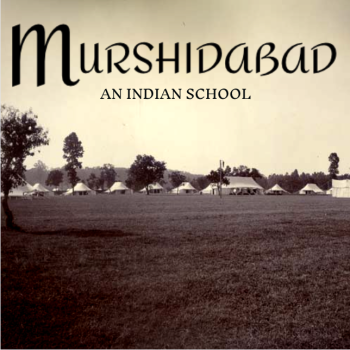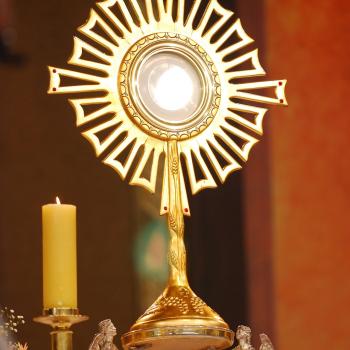Note: This article is part of a special Patheos Symposium, Passing on the Faith: Teaching the Next Generation. Read more perspectives here.
Patheos.com has asked its contributors to consider writing something in August on how one might "pass on the faith" and "teach the next generation." Consider what follows my contribution to this discussion; if this generates some good further responses, I may write about it again before the end of the month.
It has been more than a year and a half since I've written on the topic of youth involvement in the Ekklesía Antínoou. Since then, we had a session at PantheaCon 2012 on "The Ekklesía Antínoou and Queer Youth Spirituality," which was relatively well-attended but had only two people under the age of twenty at it. I have offered an online course on this matter, but no one has yet taken it. I have set a policy for myself, as far as any future public Ekklesía Antínoou rituals or events go, that they will be open to people of all ages no matter what—and indeed, all of our PantheaCon 2012 and 2013 events have been open to everyone, but the numbers under the age of eighteen have still been negligible. Meanwhile, our group has seen no increase in youth membership or participation online (to my knowledge), and most newer members over the last year have continued to be gay males in their thirties or forties. While I don't yet look on this as a failure, at the same time, it is something that looms large in my own mind and thoughts as an important matter for the future.
Part of me asks whether the above is a sign that what our group does is simply not of great interest to people who are under the age of twenty. That may very well be the case, but until we know for certain, there is no reason to change what we do (nor would we do that anyway, since no one else does quite what we do!), or to water it down or make it more "hip" and "fresh" in efforts to pander to that age group. Messaging to this group, or targeted advertising to them—insofar as such is possible without a budget or a team of individuals who could be involved in such with no remuneration—might be one way to go. But questions remain on how younger people gain access to websites and information regarding spirituality, and how often (if at all) they seek this information out. Many Pagans and polytheists find their religion when they are teenagers, sometimes in contrast to whatever their family's religion might be; but it seems more likely to me that an already Pagan or polytheist family might be a more likely place for younger people to be introduced to Antinous, Polydeukion, and others as gods and heroes who might appeal to them.
This, however, raises a lot of questions about how many Pagans and polytheists (though more the former than the latter) are actually treating the topic of religion with their children. I've heard far too many Pagans, almost in the manner of bragging, say that they have not "forced" their religion on their children, while I've also recently heard of others who have made it a point to teach their children about "all religions" as objectively as possible so that they can choose one later in life. I even heard of a Pagan parent recently who was making their child read the entirety of the Christian Bible—something that I suspect many Christian parents have not made their children do.
I understand that many Pagans, in adopting this approach, are attempting to not recreate the situations of their own childhood, where a repressive compulsory Christianity was something that they did not enjoy and over which there still may be lingering issues with their parents and extended families. Nonetheless, it would be a good test of "truth of concept" for Paganism as a viable religion for one to raise a child in it, while also giving them a good background in other religious traditions (in a manner that is neither relativist nor condemnatory, and is as informed as possible). If one's religion is good enough for oneself, why isn't it good enough to teach to one's own children? It is perfectly possible to raise a child in a given religion without "indoctrinating" them into it or in any way coercing them. Even pious adults sometimes skive when they are adults; children and teenagers, likewise, might do this as well, and there's no reason not to let them in many cases.
I can hear many Pagan parents out there already responding, "Well, you don't have children, so what do you know?" Fair enough.
I won't be having children personally, for a variety of reasons (including some that are biological). The likelihood of my adopting is also very low due to my own ongoing disability issues, which would not be negotiable for an adoption agency without a custodial parent in a long-term, legally-recognized relationship with me, most likely. I'm finding that less and less likely as well, particularly since my actual gender is not legally recognized in this country (or any country at this point), and thus any marriage I might enter into meanwhile would be a sham, at least for me. I'm not willing to do that because I feel it is dishonest.





